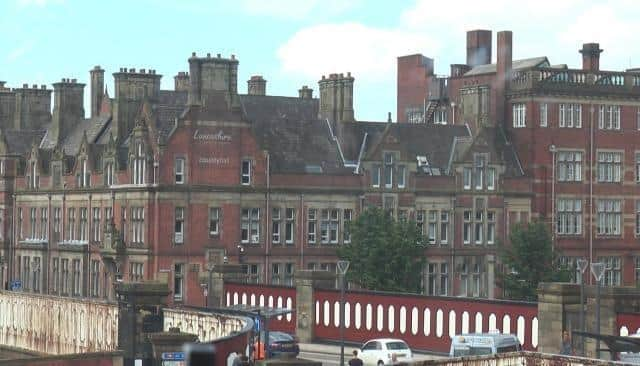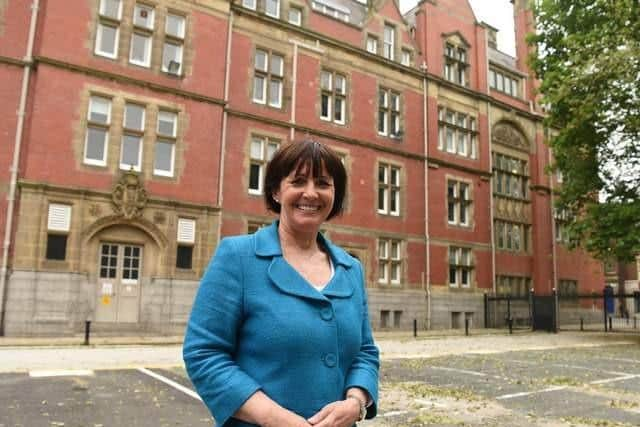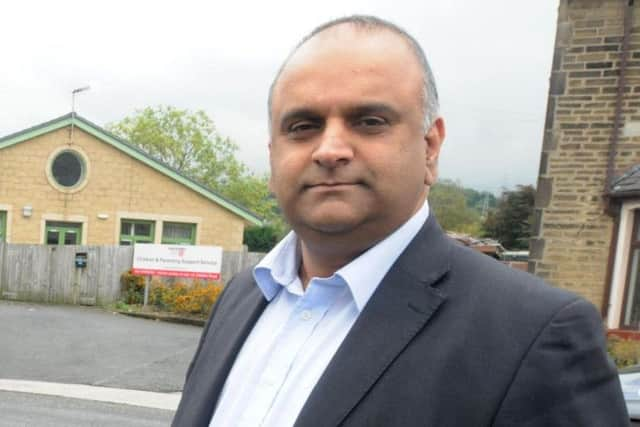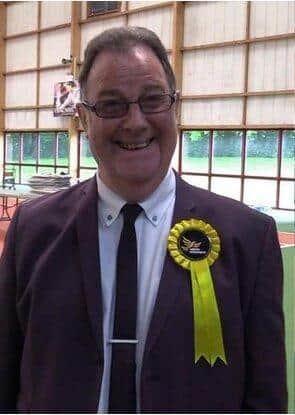Lancashire County Council cabinet members and policies to go under the microscope as part of scrutiny reforms – but who should be in control of the process?
and live on Freeview channel 276
The overhaul follows a review of the arrangements by which county councillors hold to account senior politicians, council officers and other organisations which have a bearing on County Hall’s work.
Cabinet figures have always been able to be called before cross-party scrutiny committees to answer questions about their portfolio and policies, but county council leader Phillippa Williamson told the Local Democracy Reporting Service (LDRS) that she expects they will now attend the committee meeting relevant to their role “every time” it is held.


Advertisement
Hide AdAdvertisement
Hide AdThat change is set against the backdrop of broader reforms to the authority’s scrutiny function, which the Conservative leader says should enable more councillors to be more involved in the policy-setting process.
“We take a very open approach - if you work well together on these things, then scrutiny can be really helpful, very forward-looking and [help to] shape policies.
“We expect it to be a positive engagement between all parties on the policies we discuss [in scrutiny meetings],” said County Cllr Williamson.
She was speaking to the LDRS ahead of a recent full council meeting at which a series of changes were approved amid disquiet amongst opposition members about how much of a role they can really play when all of the scrutiny committees are chaired by councillors from the ruling Tory group.


Advertisement
Hide AdAdvertisement
Hide AdOut of the four committees that will form the core of the revised set-up, two will have deputy chairs from the main Labour opposition party. That is an increase on the single one which currently does, but far from the vision of Labour leader Azhar Ali.
He welcomed some of the other steps being taken, but appealed for the administration to hand his party all of the deputy chair positions so that all groups could “work together, collaboratively, to make sure that scrutiny fulfils its function”.
“I don't think scrutiny is served well if the chairs and deputy chairs are from the same group - that’s not good practice,” County Cllr Ali said.
He added that Local Government Association (LGA) guidance was for scrutiny committees to be chaired by opposition groups - although he conceded that that option was unlikely to be put on the table by the Conservatives.


Advertisement
Hide AdAdvertisement
Hide AdHowever, Liberal Democrat county group leader David Howarth - who chairs the scrutiny committee of Labour-run South Ribble Borough Council, on which he also sits - said that the system at that authority should be replicated at County Hall.
“If you really are serious about scrutiny, you will appoint opposition members as scrutiny chairs," he said.
“One presumes you don't have any fear of serious scrutiny, that you stand by the decisions that you take and that, therefore, there shouldn't be any reason as to why you can’t be held to account and have searching questions put to you - which I’m sure you all feel you would be more than capable of answering.”
His call was echoed by fellow Lib Dem John Potter, who represents Preston West at County Hall, but is also his party’s group leader on Preston City Council. He noted that the scrutiny committee at that Labour-controlled authority was chaired by the leader of the Tory opposition - and was all the better for it.


Advertisement
Hide AdAdvertisement
Hide AdHowever, he did concede that the county council’s scrutiny arrangements had progressed from what he described as the “shut up...you're not in power” attitude of the previous Conservative administration at County Hall.
The Tories voted down an amendment by the Labour group calling for the opposition to secure all of the deputy chairmanships of the scrutiny committees, but deputy county council leader Alan Vincent said that the refreshed system was not “set in stone” - and could change in future if it was considered necessary.
“There is recognition on all sides that we need to make scrutiny work - not just for the executive, but also for the opposition and for the people of Lancashire,” he said, adding that there was “no set pattern or principle” nationwide for scrutiny chairing arrangements at local authorities.
County Cllr Williamson said that the addition of an opposition deputy chair to the scrutiny roster was a doubling of what Labour itself had offered when it was in control of the authority.
Advertisement
Hide AdAdvertisement
Hide AdThe LDRS understands that, as part of its corporate peer review of Lancashire County Council last year, the LGA did not make any specific recommendations relating to which parties should hold the leading positions on the authority’s scrutiny committees. Their overall membership is currently dominated by the Conservatives, as they have a majority at County Hall.
In theory, scrutiny committee members are supposed to leave their political persuasions at the door before putting the council’s policies under the microscope. The latest county council guidance states that members should act in a “non-partisan” way and provide “constructive challenge - and not a de facto opposition - to the cabinet".
Some scrutiny groups also have members who are co-opted from district councils and other relevant organisations, who may or may not also have voting rights.
WHAT IS CHANGING - AND IS IT FOR THE BETTER?
The most politically controversial part of the shake-up is the formation of a new scrutiny management board. That group will be responsible for agreeing and co-ordinating the subjects which the four base committees will explore - something which was previously under the sole control of the committees themselves.
Advertisement
Hide AdAdvertisement
Hide AdLabour county councillor for Lancaster East, Lizzi Collinge, warned that the new cross-party board - to be led by a chair of one of the scrutiny committees - risked introducing “extra bureaucracy” and restricting “the freedom” of the committees to act independently.
She added: “I’d argue that scrutiny…should reflect what's actually happening on the ground in Lancashire and the concerns of the people of Lancashire - not what the administration has decided is important.”
County Cllr Collinge also cautioned against plans for the new board to have control over the formation of task groups focussing on specific issues - as well as the creation of joint scrutiny committees with neighbouring authorities to explore matters which straddle local council borders.
Labour’s Steve Holgate - who represents Chorley Central - said that the devolution of agenda-setting powers to the management board could even interfere with the “statutory obligation” that NHS organisations are under to explain to the health scrutiny committee any significant changes they are planning to services.
Advertisement
Hide AdAdvertisement
Hide AdHis Labour colleague, Lancaster South East representative Erica Lewis, added that the Tory administration should “make rules that you are willing to follow as a rule-taker as well as a rule-maker”.
“[In] a body like this, it's vital that we are explicit about our rules and that we follow them - not only when they are convenient, but when they are inconvenient - because that underpins a rule of law…accountability…natural justice and the work we are doing,” County Cllr Lewis said.
Criticism of the new management board was not confined to the opposition benches, with Tory Heysham member Andrew Gardiner stressing that scrutiny committees should have free reign to set their own agendas.
“I’ve sat on scrutiny committees and I don't wear a political hat [in that role]. What I want to know is - are we delivering the best for the people that I represent? That’s it.
Advertisement
Hide AdAdvertisement
Hide Ad“The idea of scrutiny is to hold to account - whether it be people in the NHS [or] officers of this council. If a peer group has [recommended that], actually, the top table should set the agenda, that would ring alarm bells,” said County Cllr Gardiner, who added that he would nevertheless be supporting the overall reform package.
However, his fellow Conservative - the Lytham division's Tim Ashton - said that the ruling group should be lauded for going further in involving opposition parties than was the case when he first won a seat on the then Labour-run county council back in 2005.
“When Hazel Harding was Labour leader...we were offered what I called the crumbs from her table - and that was not every much, I can assure you,” he told the meeting.
Current council leader Phillippa Williamson said that there was “absolutely no intention in these proposals to either slow down the work of the scrutiny committees…or in any way to fetter what they do”.
Advertisement
Hide AdAdvertisement
Hide Ad“Quite the opposite, we would like them to be very proactive and forward looking,” said County Cllr Williamson, who added that she regarded scrutiny as a “valuable and positive vehicule for helping to shape cabinet and council policy”.
Meanwhile, two catch-all Lancashire County Council scrutiny committees will be replaced with ones which align to specific cabinet portfolio responsibilities.
The internal and external scrutiny committees - whose areas of focus were determined by whether the matters under discussion involved the workings of the council itself or those of third-party organisations - have been scrapped.
In their place, two new groups have been established - the environment, economic growth, and transport scrutiny committee and the community, cultural and corporate services scrutiny committee.
Advertisement
Hide AdAdvertisement
Hide AdThey will join the existing - but now renamed - scrutiny committee for health and adult services and also children, families and skills, both of which will have deputy chairs from the opposition group. Each of the four groups will meet every six weeks.
The new management board will also be responsible for monitoring responses to any recommendations made by scrutiny committees, which are a common outcome of their work.
WHO DOES WHAT?
From this summer, these are the cross-party committees that will be scrutinising the work for the county council and other organisations which have an impact on the lives of Lancashire residents - and what they will be doing.
Health and Adult Services Scrutiny Committee - reviewing and scrutinising any matter relating to the planning, provision and operation of the health service in Lancashire, along with the county council’s adult services and public health functions. It also has a statutory responsibility for scrutiny of any NHS proposals for a substantial development of, or variation in, health services for both adults and children in the county. The committee will be made up of 12 county councillors, plus 12 plus 12 non-voting co-opted members nominated by Lancashire’s 12 district councils.
Advertisement
Hide AdAdvertisement
Hide AdChildren, Families and Skills Scrutiny Committee - reviewing and scrutinising the county council’s children’s services functions and any other matters affecting children, young people and families. The committee will also satisfy the statutory responsibilities related to the education functions of a children’s services authority like Lancashire County Council. The committee will be made up of 16 county councillors, five voting co-opted members - three church representatives and two parent governor representatives - and two non-voting co-opted members representing the Youth Council.
Environment, Economic Growth and Transport Scrutiny Committee - reviewing and scrutinising the work of the county council and external organisations on mattersrelating to the environment and climate change, economic development and growth, and highways and transport. The committee will be made up of 12 county councillors.
Community, Cultural, and Corporate Services Scrutiny Committee - reviewing and scrutinising the work of the county council and external organisations on matters relating to community safety and cohesion, and county council support services.
